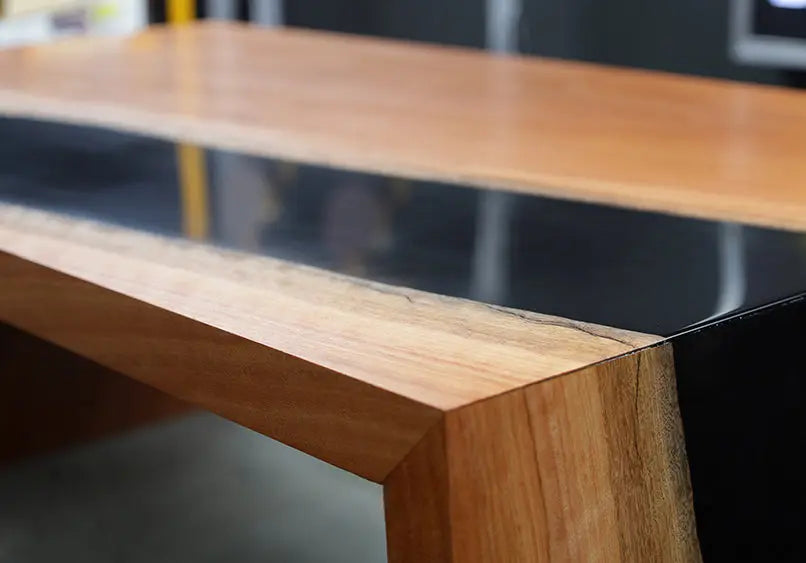
A guide to sanding and finishing an epoxy table
There is something special about a piece of furniture that offers something more than functionality. Furniture making can be seen as a form of expression and has seen many designs...
The smart solution
Determining the correct grit can be challenging, as it depends on how deep the scratch is, but start with a fine grit, and go towards coarse until the scratch is reduced, rather than starting with a grit that is too coarse, and spending more time on the job. Sanding glass removes material and the coarse grits remove more.
The fewer steps necessary to get the job done, the better. Otherwise, there is a risk of optical refraction. The polishing step takes longer than the sanding steps.
When sanding and polishing, keep the polisher flat to surface, this will give a better and smoother finish.
Clean in between the steps to avoid dust from previous steps causing any scratches.
Throughout the entire process, do not touch the glass with bare fingers, as transferred grease will affect the result and in worst case fingerprints will be visible. Use gloves!
Always use a dust protection mask. Please check local legislation about concentrations known to be hazardous.
Take sufficient time over each sanding step, it is all about giving each step the time it needs.
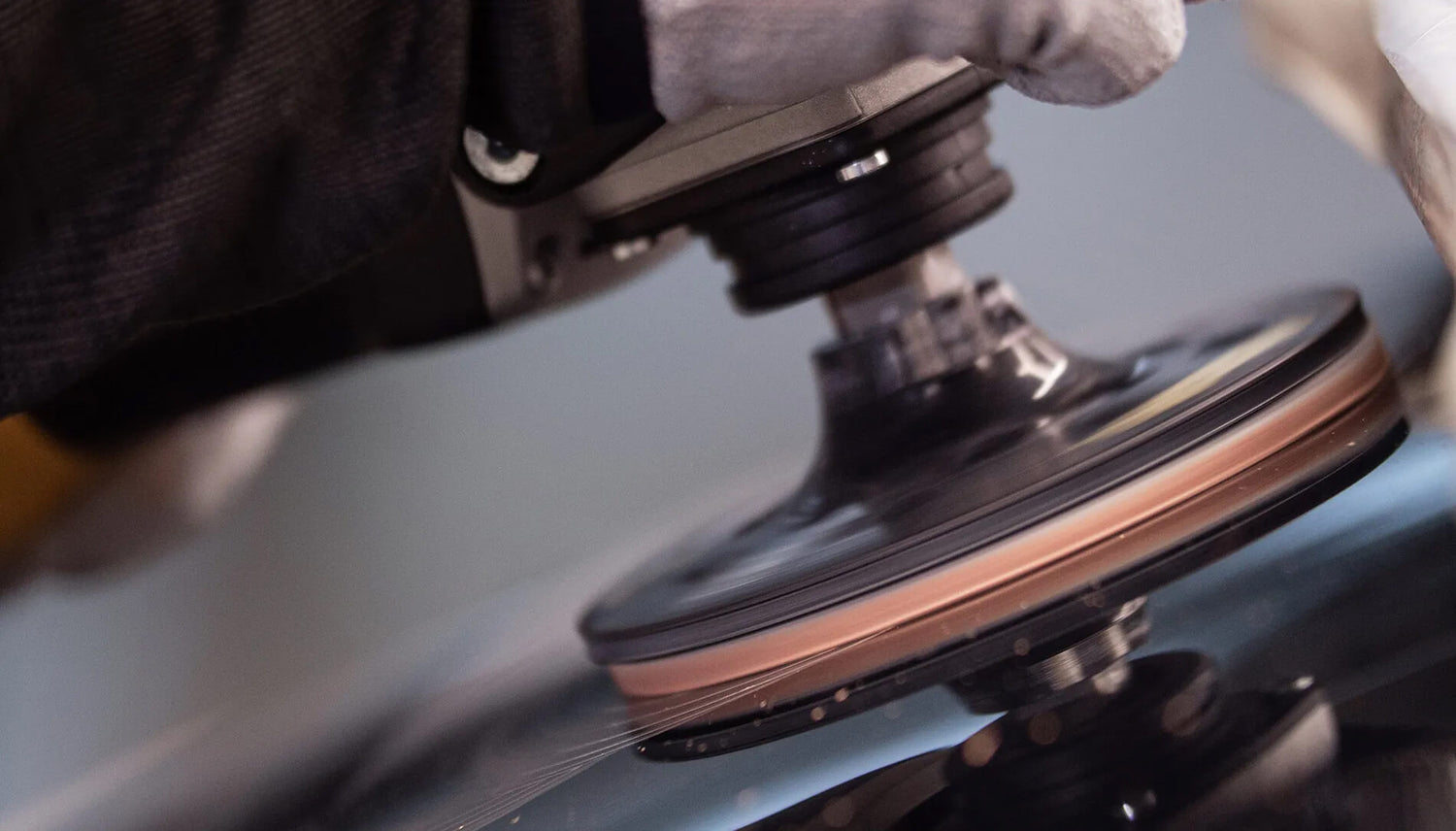
Before you start
Start sanding with a fine grit, eg. 320 grit, or just polish out the scratch. If the fine grit does not sand enough, use the next coarser grit. This way you can avoid additional steps when removing the scratches. The following process is an example only. The method differs depending on the type of scratch and your own preferences.
Glass sanding & polishing example process
This process is as a guide only. The process may be different depending on the type of scratch and an individual's preferences.
Step 1 - Clean and inspect
Clean and inspect the damaged area.
Button labelStep 2 - Sand with SIC NS
Use Abranet SIC NS. Select the finest grit disc that will effectively remove the scratch. (eg. 150 grit)
Hold the sander flat on the glass and sand until the scratch is removed.
Check the temperature does not exceed 70°c throughout the process.
Continue the sanding process using gradually finer discs ending at 400 grit.
Step 3 - Sand with Abralon
Start with Abralon 500 grit and expand the repair area to create an effective blend. Ensure to hold the sander flat to the glass.
Work on a small area at a time as Abralon discs will only start cutting when the glass has warmed up.
The area will become cloudier as the scratches become finer.
You will end this process around 1000 grit.
Step 4 - Polishing
Dampen the Abralon 1000 grit. Focus on the edges to soften and blend the repair.
Inspect the area to ensure all scratches have been removed.
Switch to the Felt Polishing Pad and apply Polarshine E3.
Polish at low speed between 1100-1500 rpm working on a small area at a time as the polish will start cutting once the glass has warmed up. The polishing pad will grip once the temperature is reached.
Step 5 - Finishing
Sand with Abralon 1000 grit and Rotary Polisher. Wipe the surface clean.
Repeat the polishing stage until full clarity is restored to the glass.
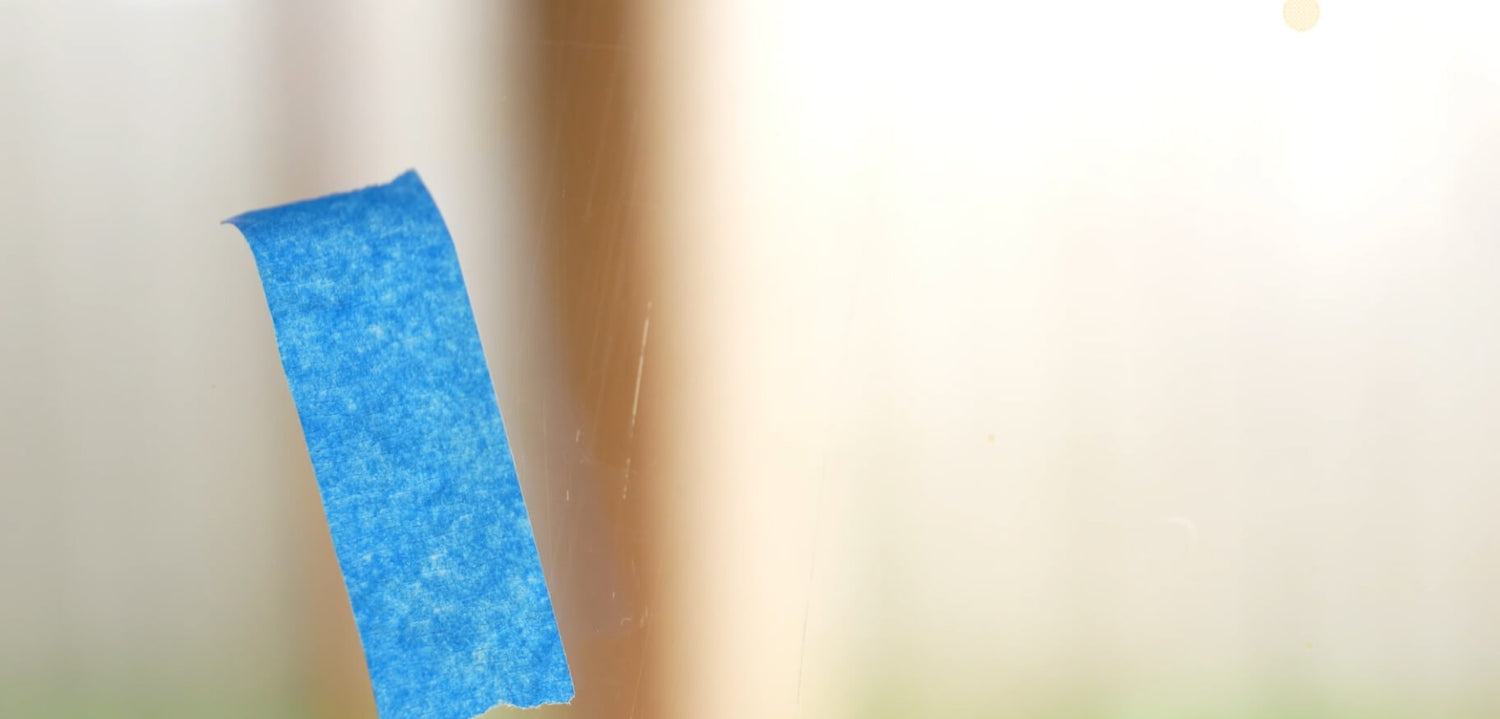
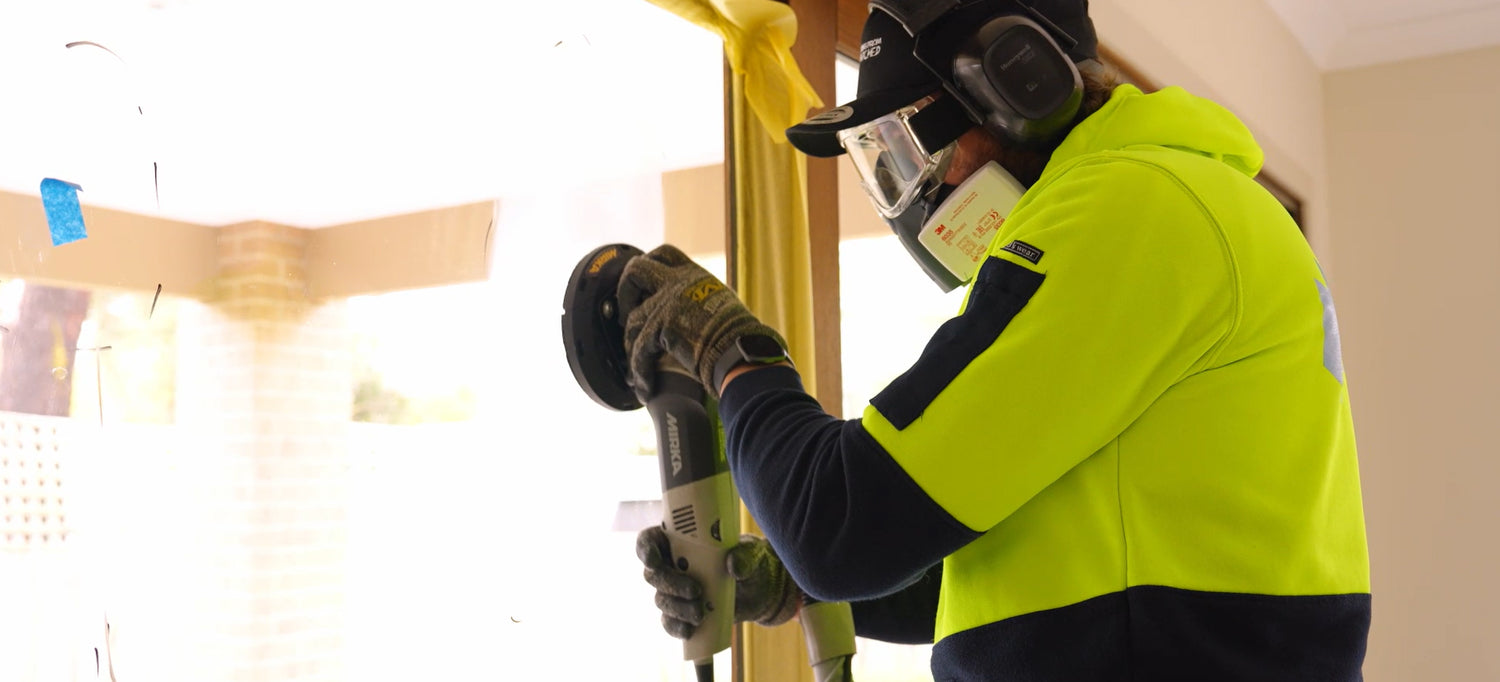
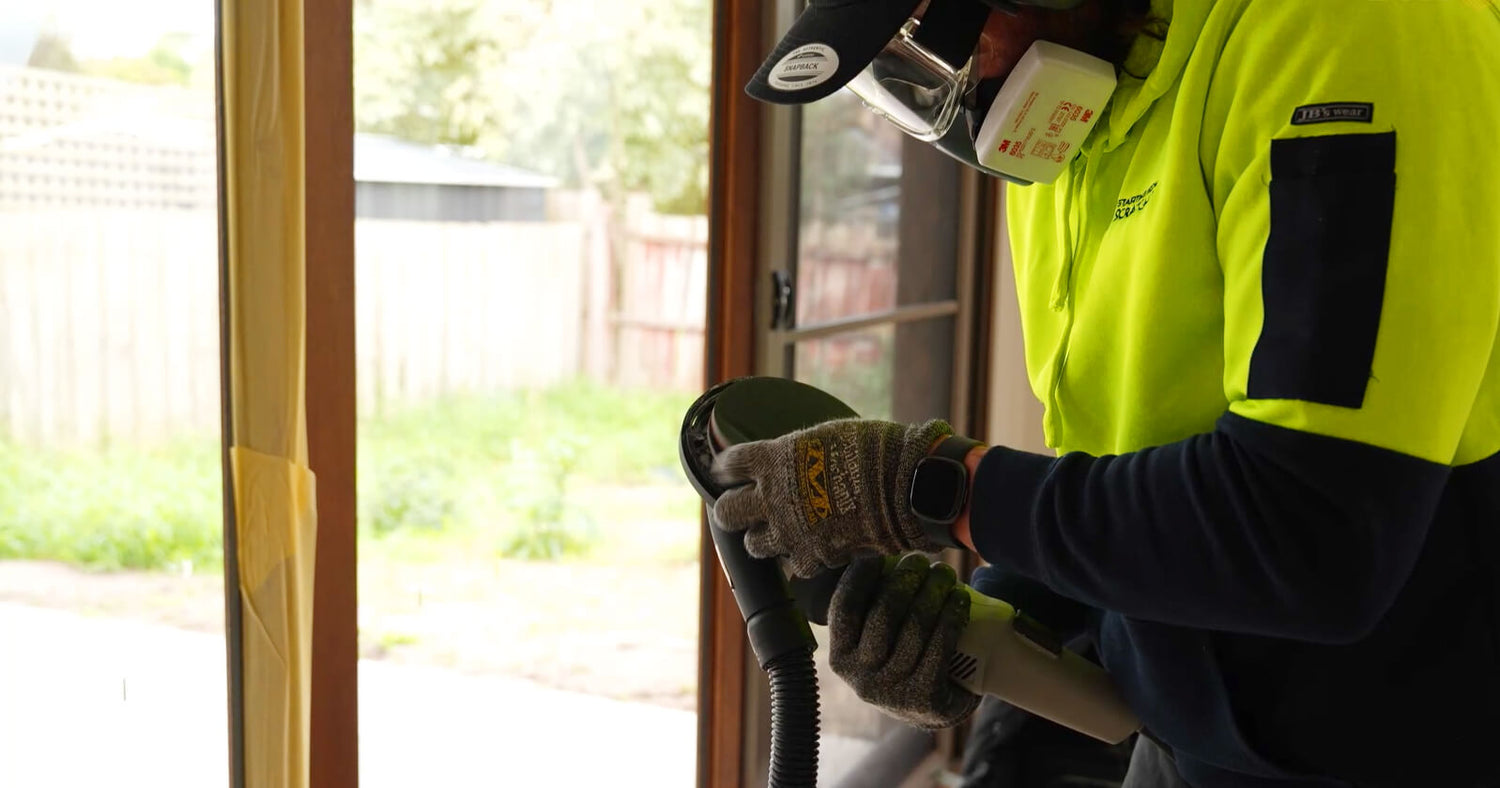
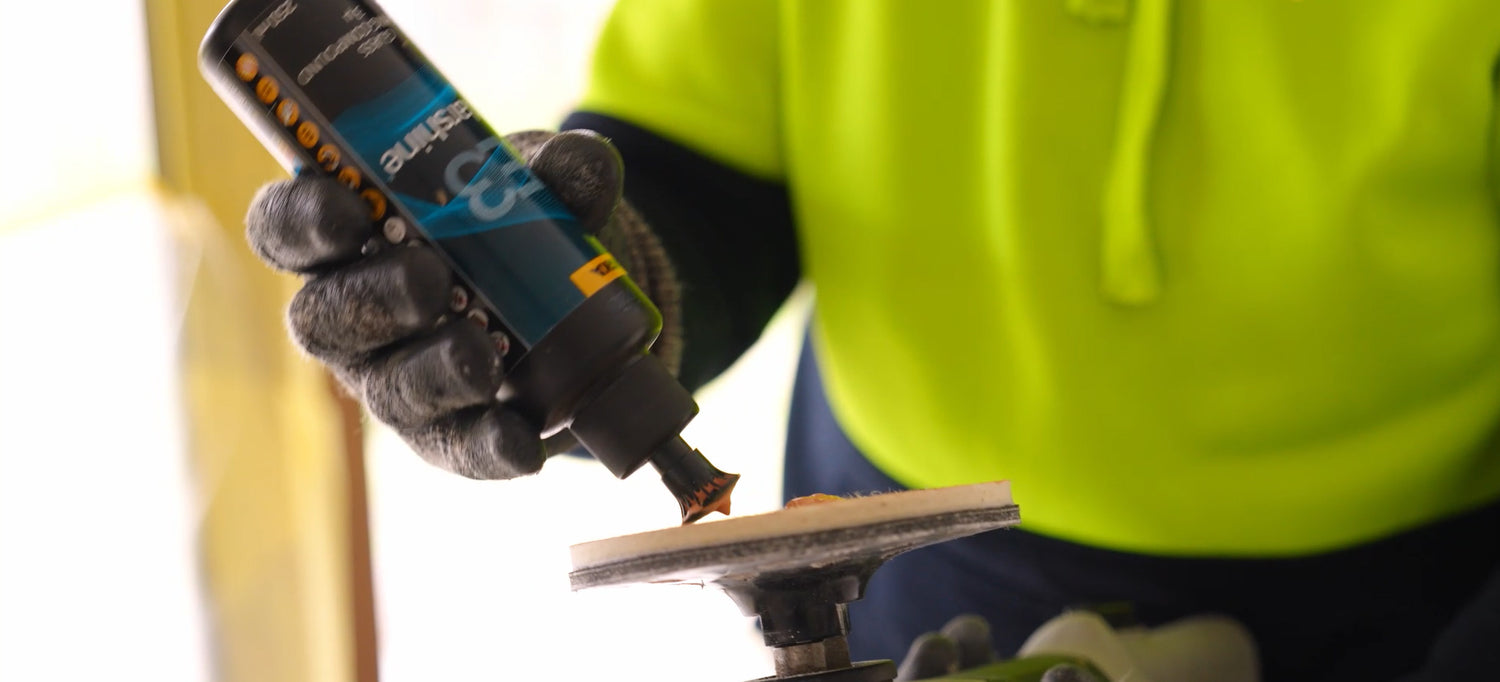
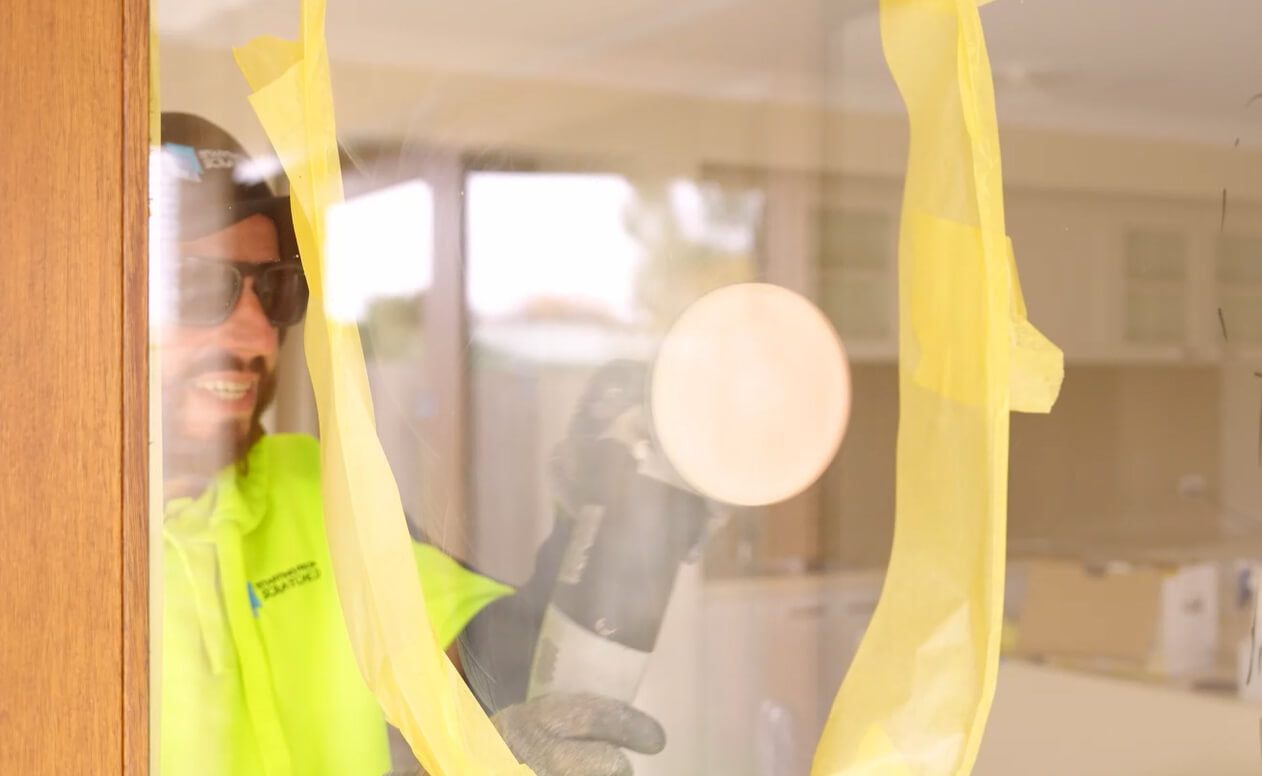
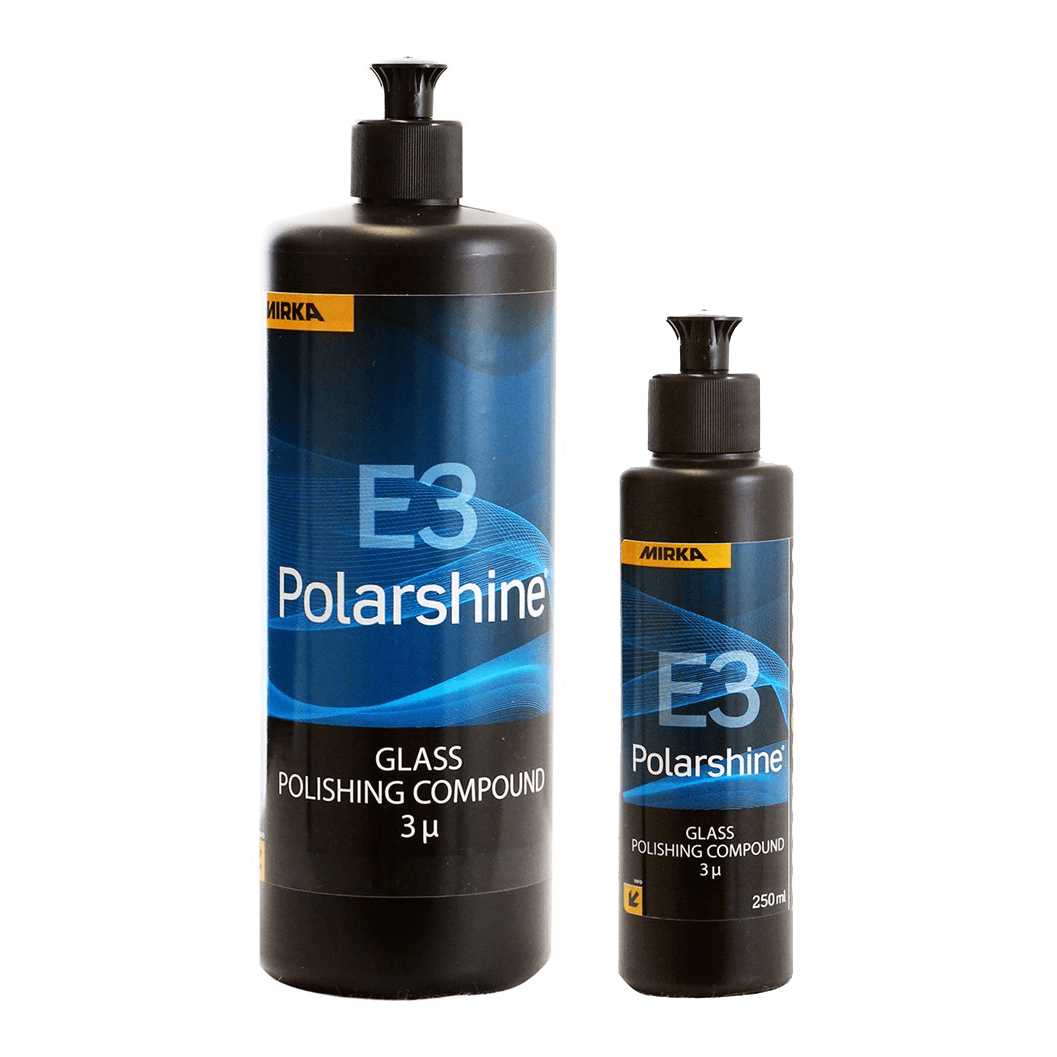
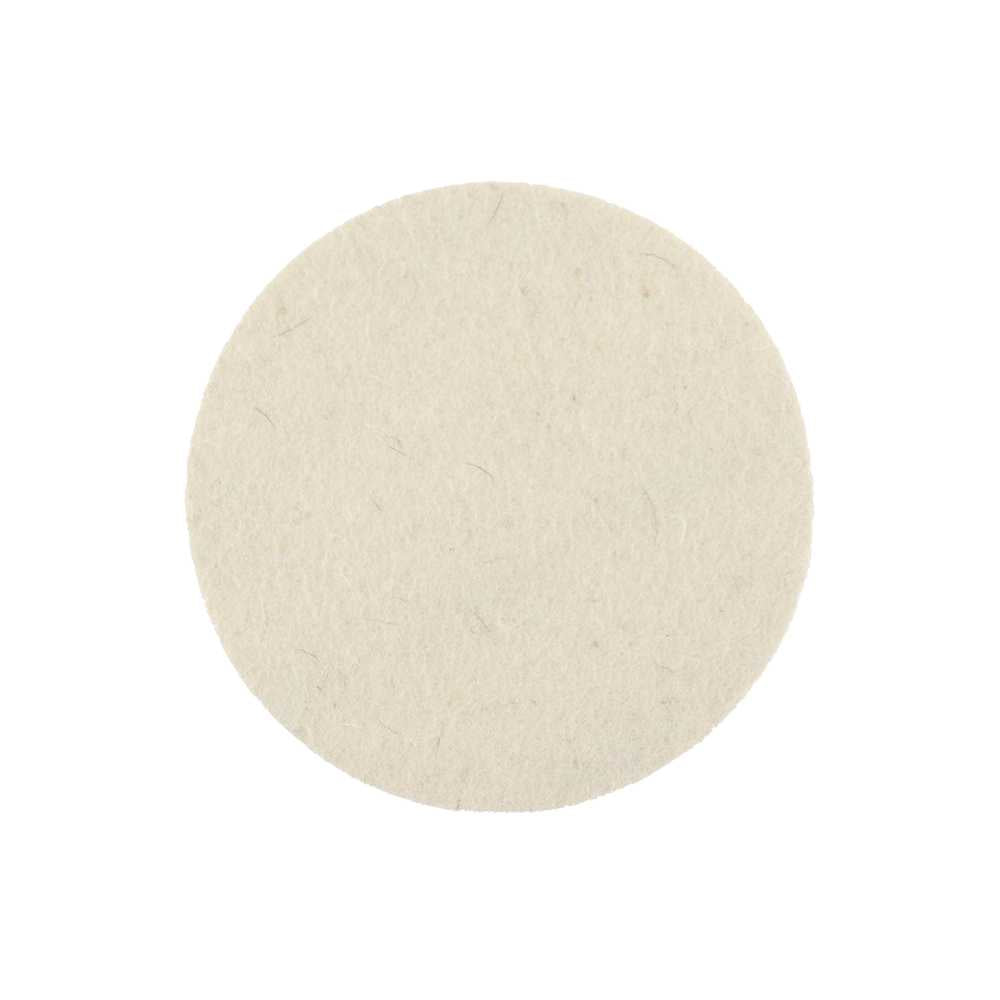
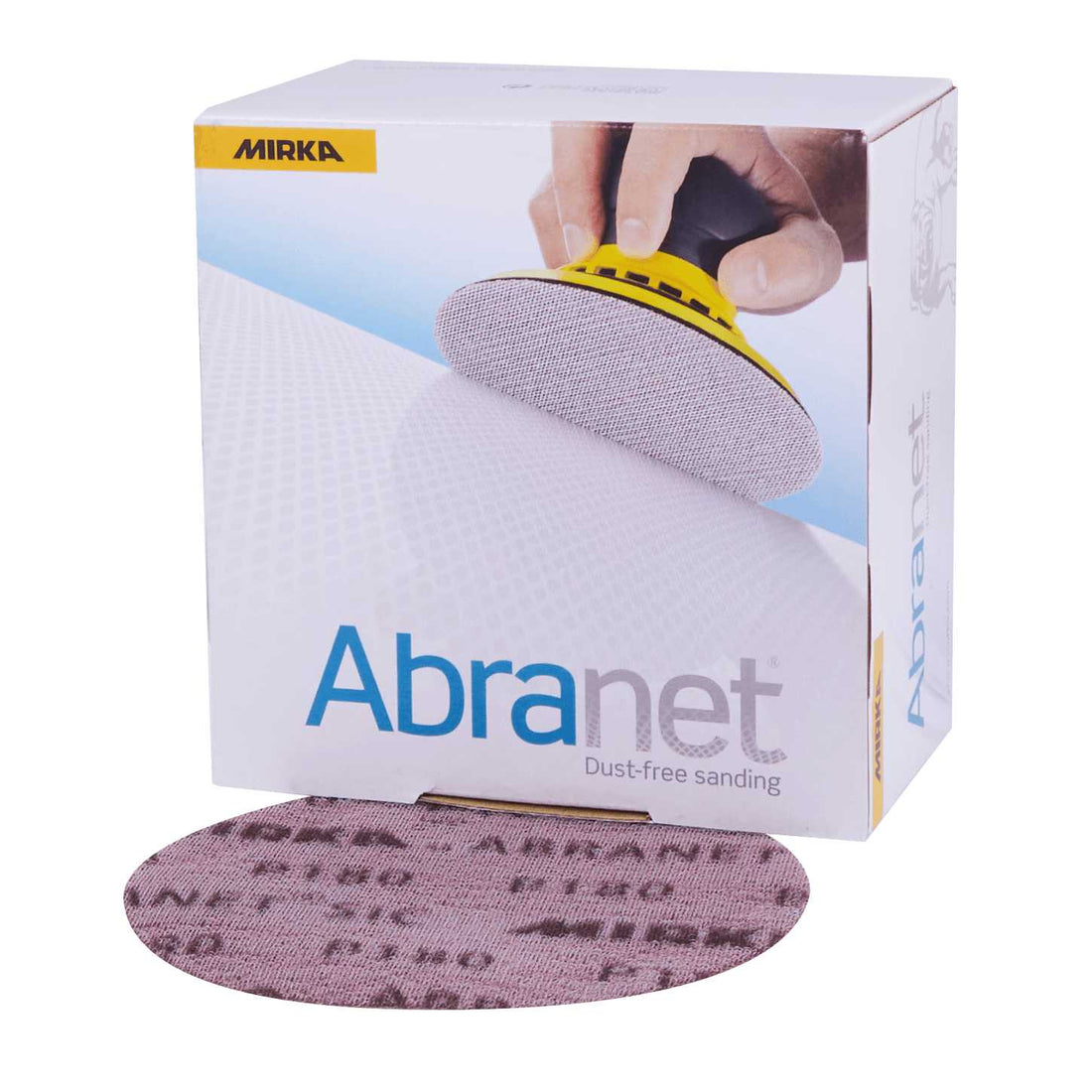
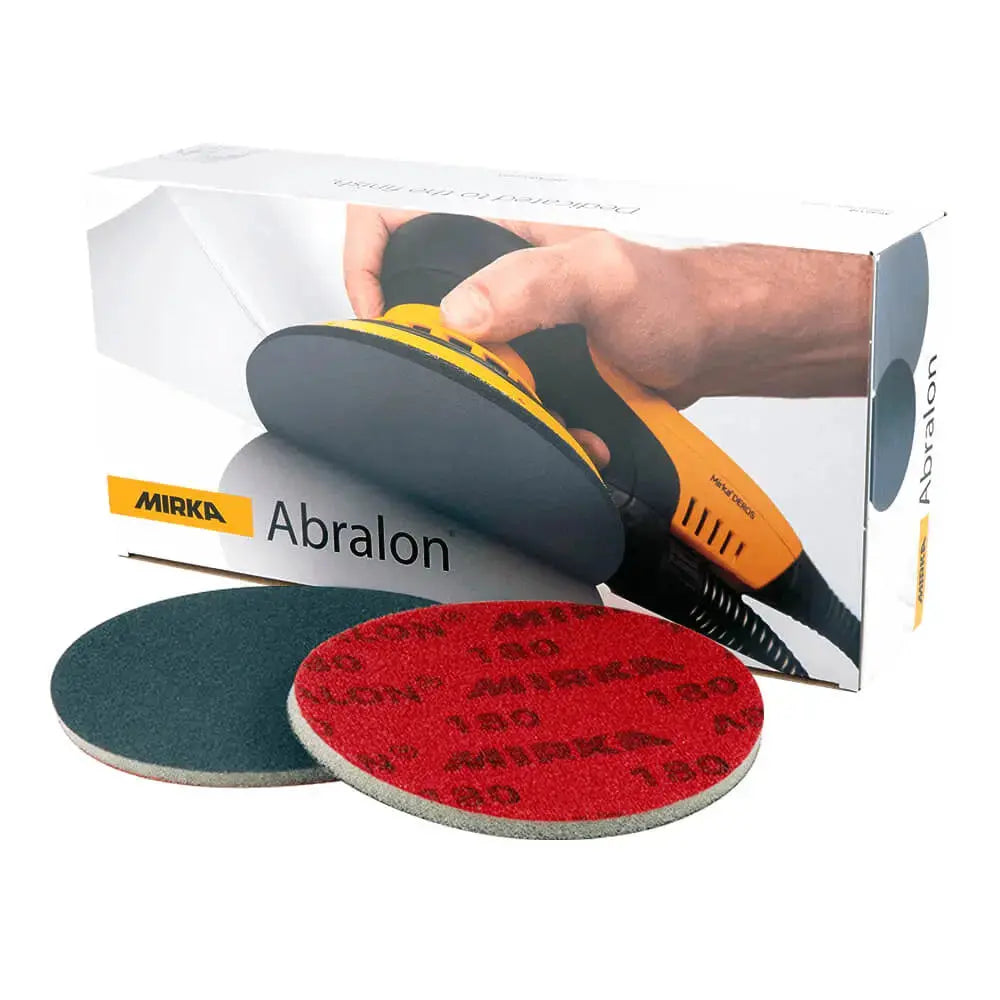
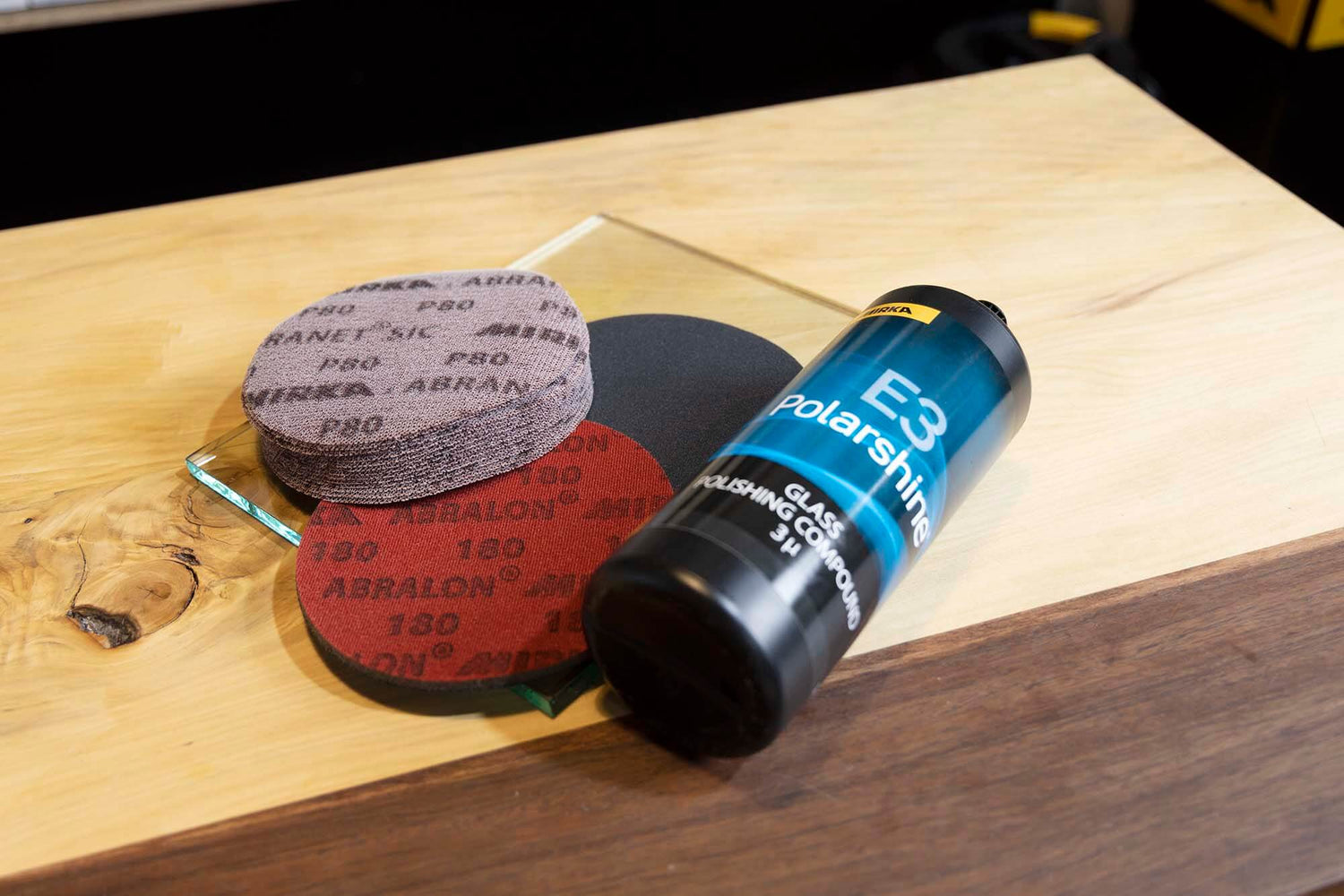
Abranet SIC NS or Abralon?
Both Abranet SIC NS and Abralon use Silicon Carbide grains, which is the optimal grain when sanding glass. They contain no stearate coating, which is unnecessary for sanding glass.
If you have deep scratches or you are sanding a large area, start with Abranet SIC NS.
For superficial scratches, we recommend starting with Abralon. Abranet gives a closer feeling to sanding surface and a more aggressive sanding result.
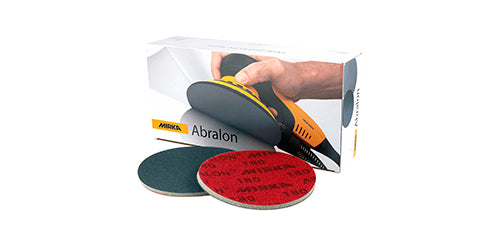
Abralon
Abralon is a versatile sanding disc designed for use on both smooth and contoured surfaces. Its innovative flexible structure minimises the possibility of pressure marks while enabling the creation of a smooth sanding pattern on sloped surfaces and edges.
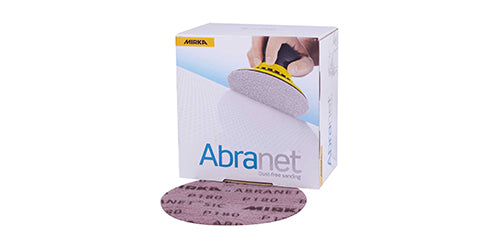
Abralon SIC NS
Abranet SIC NS is a specialty abrasive that uses silicon carbide cutting grains formulated completely without the use of stearate. It has been developed especially for use with glass and is also perfectly suited for use with clear coats, primers, carbon fibre and other composites.
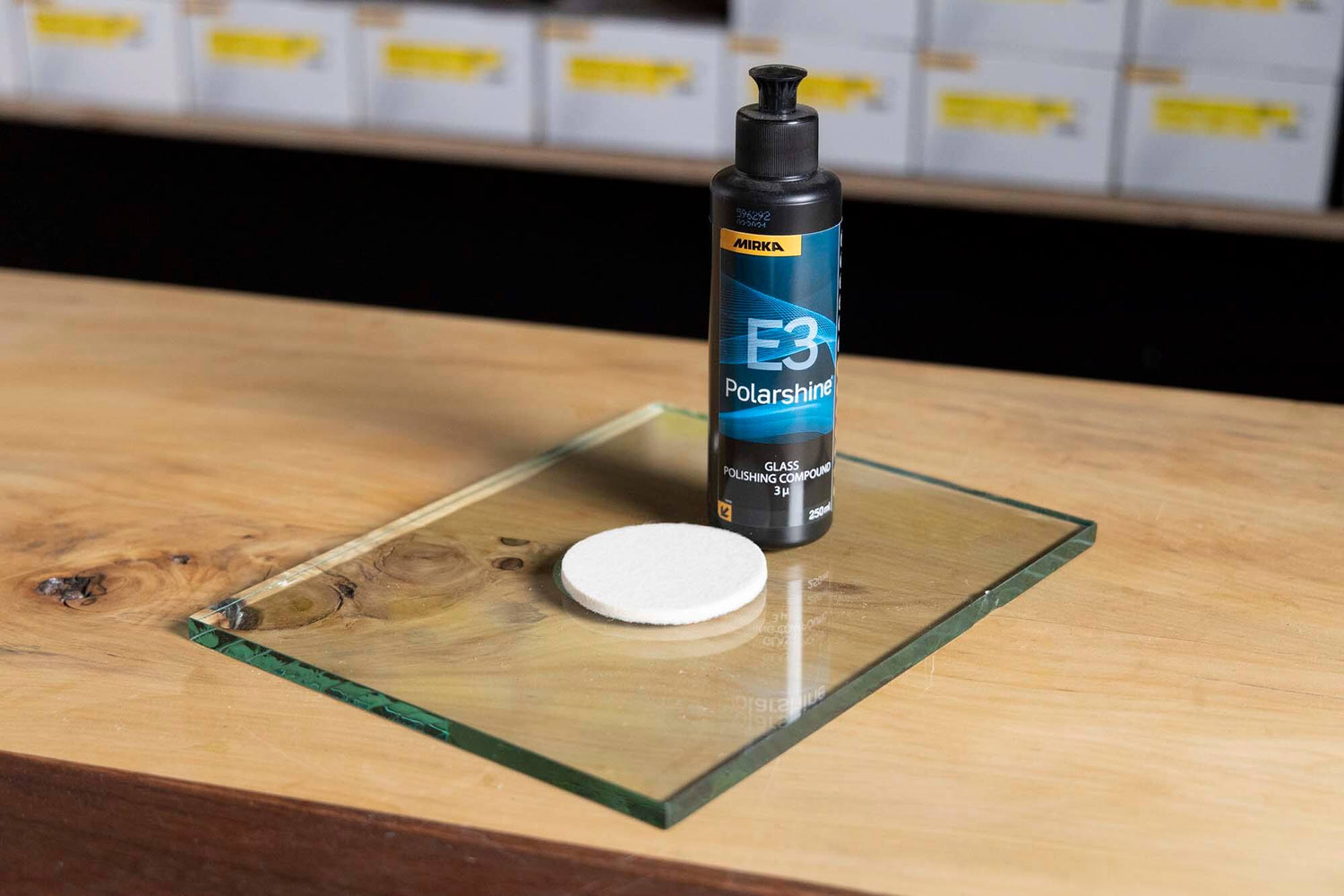
A better choice for you and the environment
All polishes that Mirka produces are water-based and produced in Finland. There are many benefits of choosing a water-based polishing compound.
Same day dispatch
All orders received by 2pm are dispatched on the same day, with express post options Australia-wide.
Best Price Guaranteed
Find a better price online or in store and we'll beat it by 5%*
Outstanding Service
Contact our helpful team at info@bestabrasives.com.au
or by phone on 02 8036 8478.

There is something special about a piece of furniture that offers something more than functionality. Furniture making can be seen as a form of expression and has seen many designs...
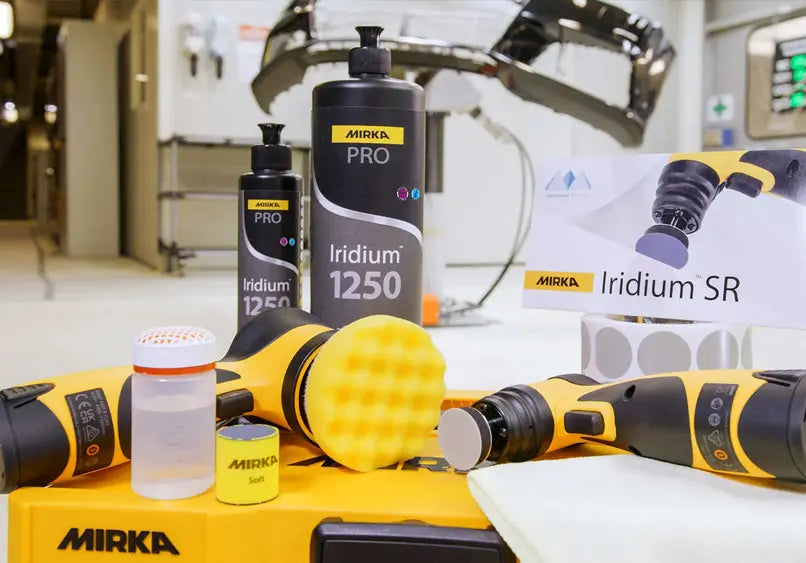
The vehicle refinishing process can be time-consuming and painstaking, requiring great attention to detail. The results have to be meticulous - free of holograms and defects. Any option that saves...
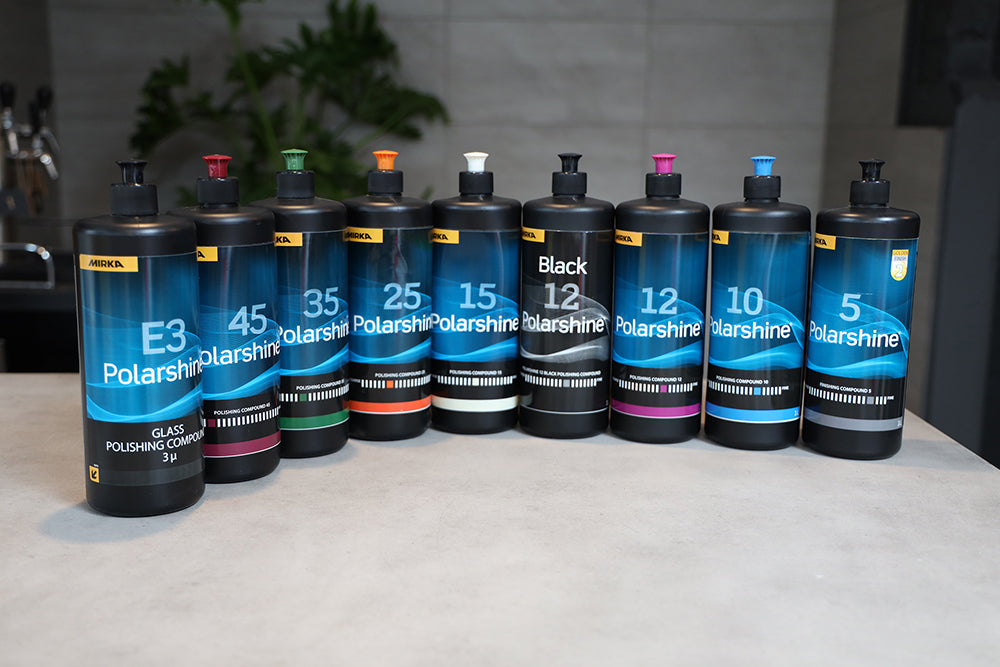
When it comes to achieving a flawless, mirror-like finish on various surfaces, Mirka Polarshine polishing compounds have become the go-to choice for professionals and enthusiasts alike. With innovative waterbased and...